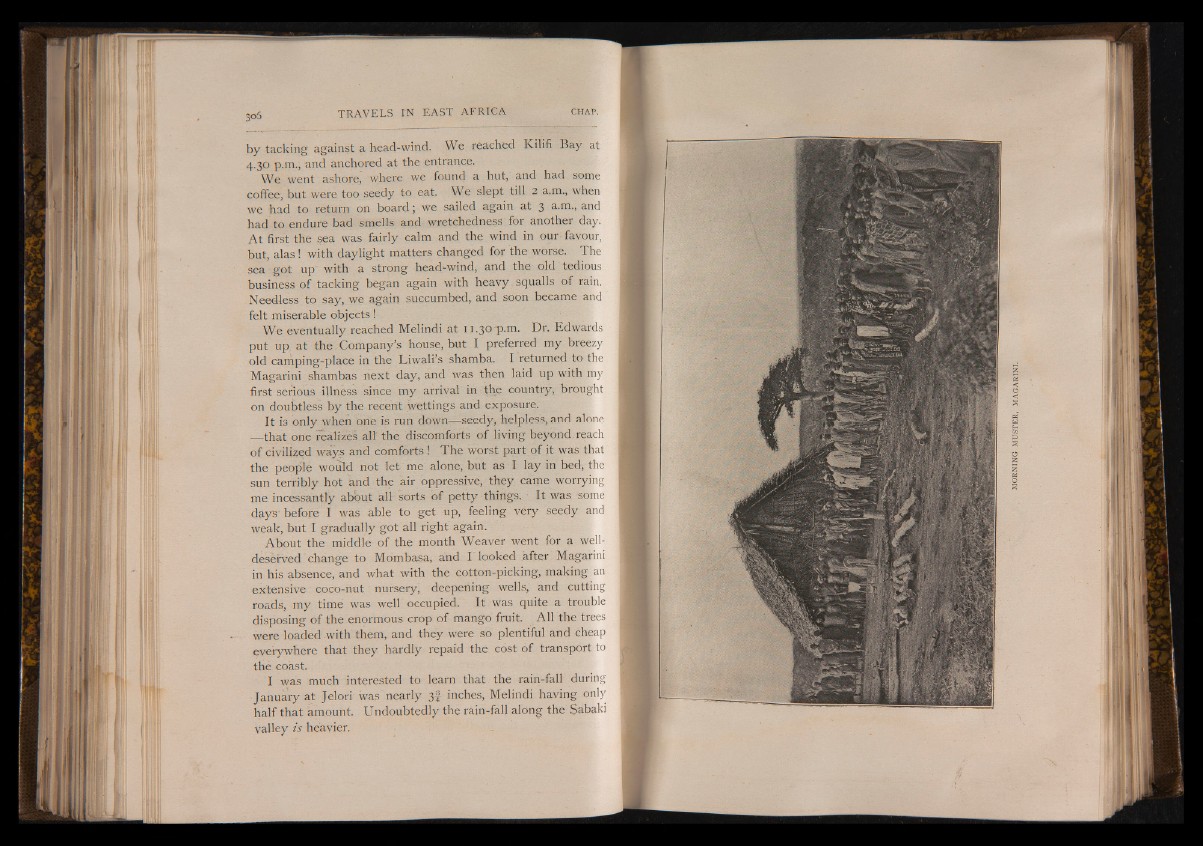
by tacking against a head-wind. We reached Kilifi Bay at
4.30 p.m., and anchored at the entrance.
We went ashore, where we found a hut, and had some
coffee, but were too seedy to eat. We slept till 2 a.m., when
we had to return on board; we sailed again at 3 a.m., and
had to endure bad smells and wretchedness for another day.
At first the sea was fairly calm and the wind in our favour,
but, alas! with daylight matters changed for the worse. The
sea got up' with a strong head-wind, and the old tedious
business of tacking began again with heavy squalls of rain.
Needless to say, we again succumbed, and soon became and
felt miserable objects!
We eventually reached Melindi at n .30-p.m. Dr. Edwards
put up at the. Company’s house, but I preferred my breezy
old camping-place in the Liwali’s shamba. I returned to the
Magarini shambas next day, and was then laid up with my
first serious illness since my arrival in the country, brought
on doubtless by the recent Wettings and exposure.
It is only when one is run down— seedy, helpless, and alone
— that one realizes all' the discomforts of living beyond.reach
of civilized ways and comforts ! The worst part of it was that
the people would not let me alone, but as I lay in bed, the
sun terribly hot knd the air oppressive, they came worrying
me incessantly about all sorts of petty things. It was some
days' before I was able to get up, feeling very seedy and
weak, but I gradually got all right again.
About the middle of the month Weaver went for a well-
deserved change to Mombasa, and I looked after Magarini
in his absence, and what with the cotton-picking, making an
extensive coco-nut nursery, deepening wells, and cutting
roads, my time was well occupied. It was quite a trouble
disposing of the enormous crop of mango fruit. All the trees
were loaded with them, and they were so plentiful and cheap
everywhere that they hardly repaid the cost of transport to
the coast.
I was much interested to learn that the rain-fall during
January at Jelori was nearly 3 f inches, Melindi having only
half that amount. Undoubtedly the rain-fall along the Sabaki
valley is heavier.